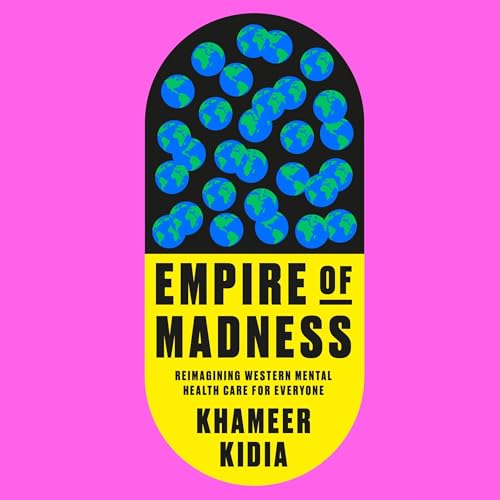
Empire of Madness
Reimagining Western Mental Health Care for Everyone
Falha ao colocar no Carrinho.
Tente novamente mais tarde
Falha ao adicionar à Lista de Desejos.
Tente novamente mais tarde
Falha ao remover da Lista de Desejos
Tente novamente mais tarde
Falha ao adicionar à Biblioteca
Tente outra vez
Falha ao seguir podcast
Tente outra vez
Falha ao parar de seguir podcast
Tente outra vez
Assine e ganhe 30% de desconto neste título
R$ 19,90/mês após o teste gratuito de 30 dias. Cancele a qualquer momento.
Curta mais de 100.000 títulos de forma ilimitada.
Ouça quando e onde quiser, mesmo sem conexão
Sem compromisso. Cancele grátis a qualquer momento.
Compre agora por R$ 102,99
-
Narrado por:
-
Khameer Kidia
-
De:
-
Khameer Kidia
Sobre este título
What if the mainstay of mental health care involved cancelling onerous debt, giving poor people free housing, and paying reparations to the descendants of slavery and colonialism? In Empire of Madness, Dr. Khameer Kidia re-evaluates the Western approach to mental health, which medicates symptoms instead of changing the structures that harm the human psyche. A physician and researcher whose own family suffers from the psychological effects of colonialism, Kidia highlights the limitations of the Western mental health model by reporting from the front lines of mental health crises at home, in the clinic, and during a decade of fieldwork.
Clear-eyed and openhearted, Kidia asks the nuanced questions unaddressed by our current mental health model: How do history, culture, and politics shape mental distress? Are hoarding and burnout medical diagnoses or social problems? Why are schizophrenia outcomes sometimes better in poor countries without antipsychotics? Can a traditional healer treat mental illness better than a Western-trained clinician? For those living in poverty, can cash replace pills?
With rigorous research, cutting analysis, and illuminating prose, Kidia invites us to reimagine mental health as a global idea where our wellbeing is mutual and everyone’s voice—patients, caregivers, and healthcare workers alike—matters.
Ainda não há avaliações


